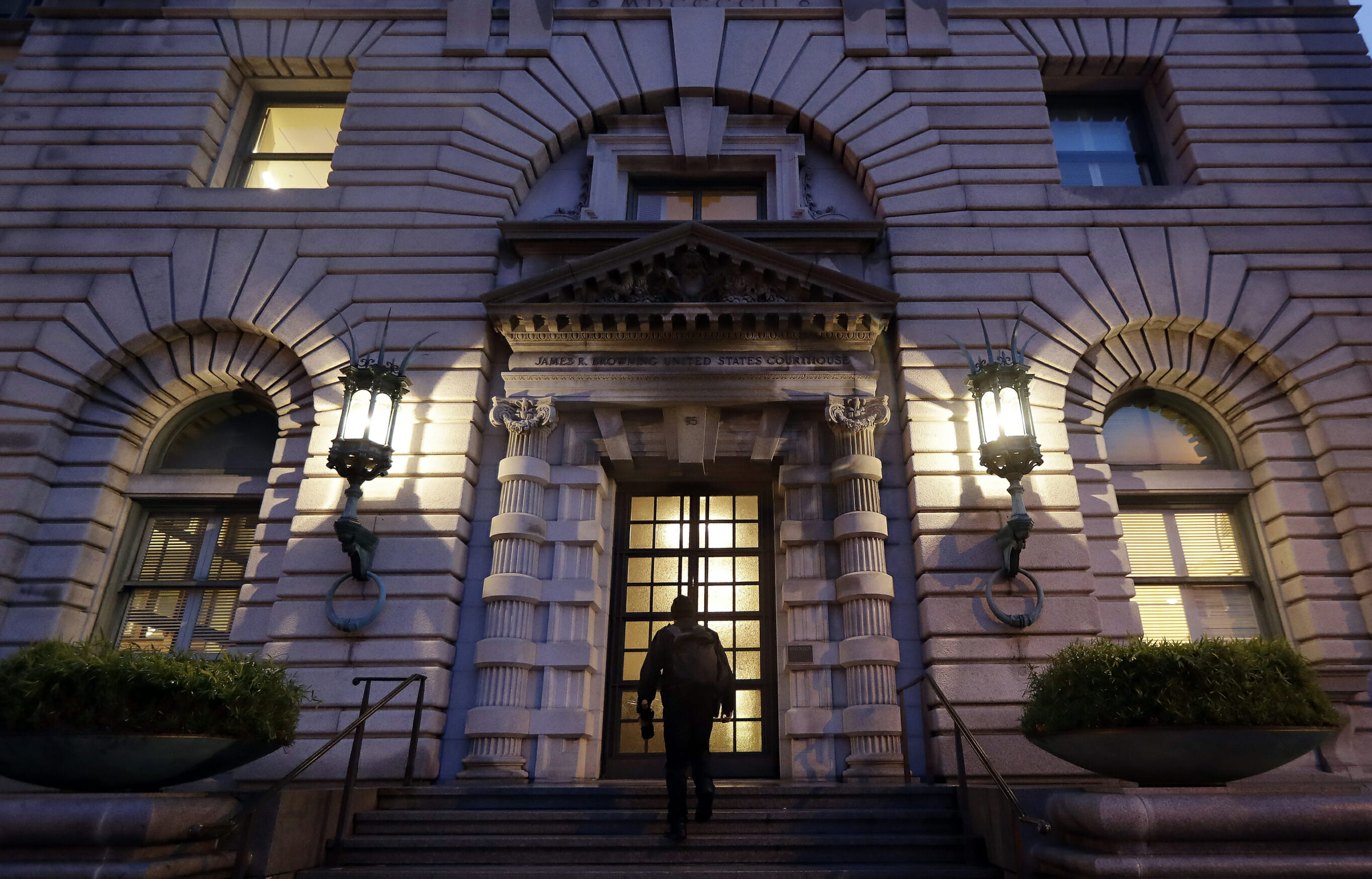
Trump vs. California immigration suit heads to appeals court
SAN FRANCISCO (AP) — A U.S. appeals court appeared inclined Wednesday to reject a request by the Trump administration to block a California law limiting police cooperation with immigration officials.
But the 9th U.S. Circuit Court of Appeals raised concerns about another state law extending protections to people in the country illegally. The Trump administration has sued California over three such laws, saying they obstruct federal immigration efforts and urging the 9th Circuit to block them.
Judge Milan Smith said at a hearing that U.S. officials might find it frustrating that local authorities can’t help them take custody of people in the country illegally.
But “because it’s an obstacle doesn’t mean it’s illegal, right?” he asked an attorney for the U.S. Department of Justice.
The law prevents law enforcement agencies in the state from providing release dates and personal information of jail inmates — information administration officials say they need to safely remove dangerous people who are in the country illegally.
Judge Andrew Hurwitz said it doesn’t allow local officials to interfere with federal efforts to take immigrants into custody, it just forbids them from “affirmatively helping.”
“They’re not required to be helpful, are they?” he asked.
Smith and Hurwitz, however, expressed concerns about another state law requiring inspections of facilities where immigrants are detained. The panel did not immediately issue a ruling.
The inspection law also calls on the state attorney general to review the legal rights immigrants are afforded and how they are being apprehended. Hurwitz said he had trouble understanding how the conditions under which immigrants were apprehended were any of California’s business. He also raised concerns that the authority to evaluate the due process immigrants receive may be too broad.
Smith questioned whether the state could require more of federal detention facilities than it does of state facilities.
More than 50 immigrant advocates protested outside the federal courthouse before the hearing, some holding signs saying “ICE out of California,” referring to U.S. Immigration and Customs Enforcement.
The Trump administration’s 2018 lawsuit was part of its broader efforts to crack down on so-called sanctuary jurisdictions that it says allow criminals to stay on the streets. It is among numerous legal fights between the White House and Democrat-dominated California. California has sued the Trump administration dozens of times, mostly over immigration, the environment and health.
California officials say their policies limiting cooperation with U.S. immigration authorities promote trust between immigrant communities and law enforcement and encourage witnesses and victims to report crime.
An attorney for the state, Aimee Feinberg, said Congress did not require in an immigration law that states assist with immigration enforcement. “It’s purely voluntary,” she said.
The three laws were aimed at preserving “state resources for state priorities and to safeguard the health and welfare of state residents,” the California attorney general’s office said in a brief to the 9th Circuit. “Nothing in the Constitution or federal immigration law divests the state of the authority to make those choices.”
Daniel Tenny, an attorney with the Justice Department, said all three laws interfere with federal immigration enforcement.
The Justice Department argued in court documents that the Constitution gives the federal government pre-eminent power to regulate immigration.
“The bills, individually and collectively, mark an extraordinary and intentional assault on the federal government’s enforcement of the immigration laws,” Justice Department attorneys said in a filing.
U.S. Judge John Mendez in Sacramento ruled in July that California could limit police cooperation with immigration officials and require inspections of detention facilities where immigrants are held, but the state could not bar private employers from allowing immigration officials on their premises without a warrant. The 9th Circuit judges spent little time on Wednesday discussing the third law.
The Western Journal has not reviewed this Associated Press story prior to publication. Therefore, it may contain editorial bias or may in some other way not meet our normal editorial standards. It is provided to our readers as a service from The Western Journal.
Truth and Accuracy
We are committed to truth and accuracy in all of our journalism. Read our editorial standards.
Advertise with The Western Journal and reach millions of highly engaged readers, while supporting our work. Advertise Today.












